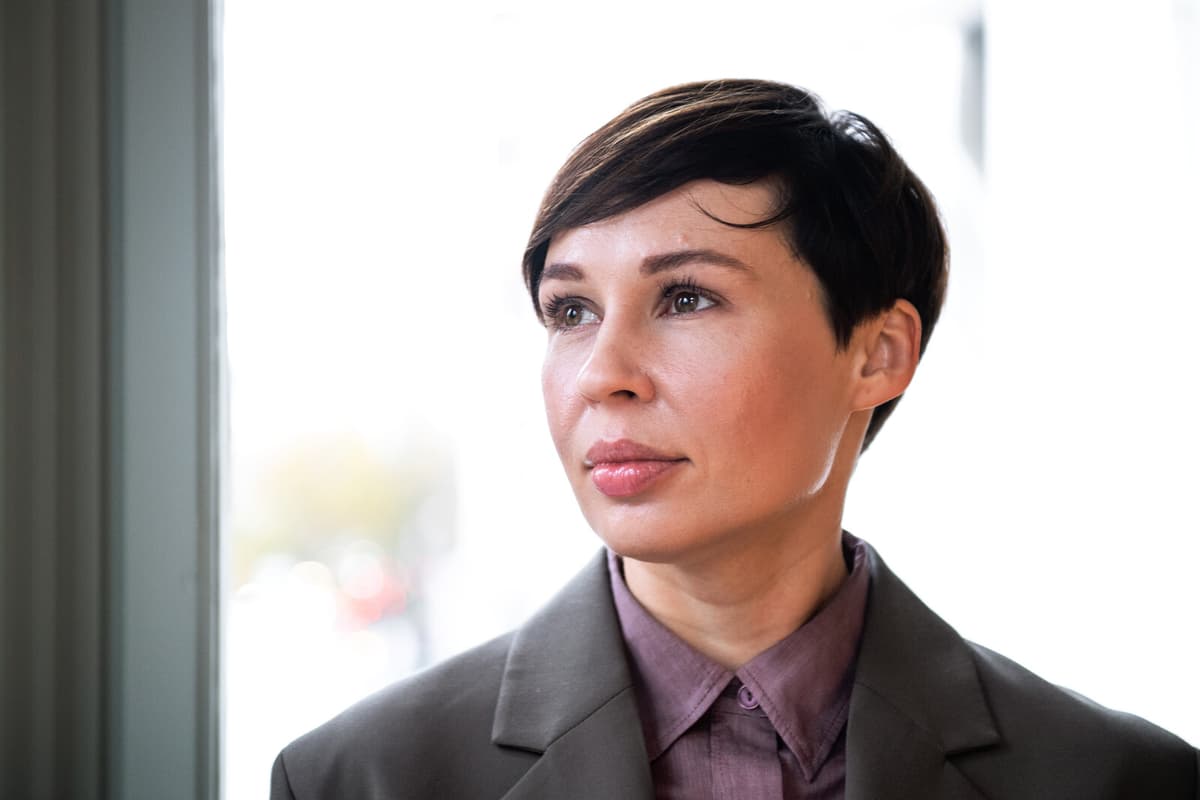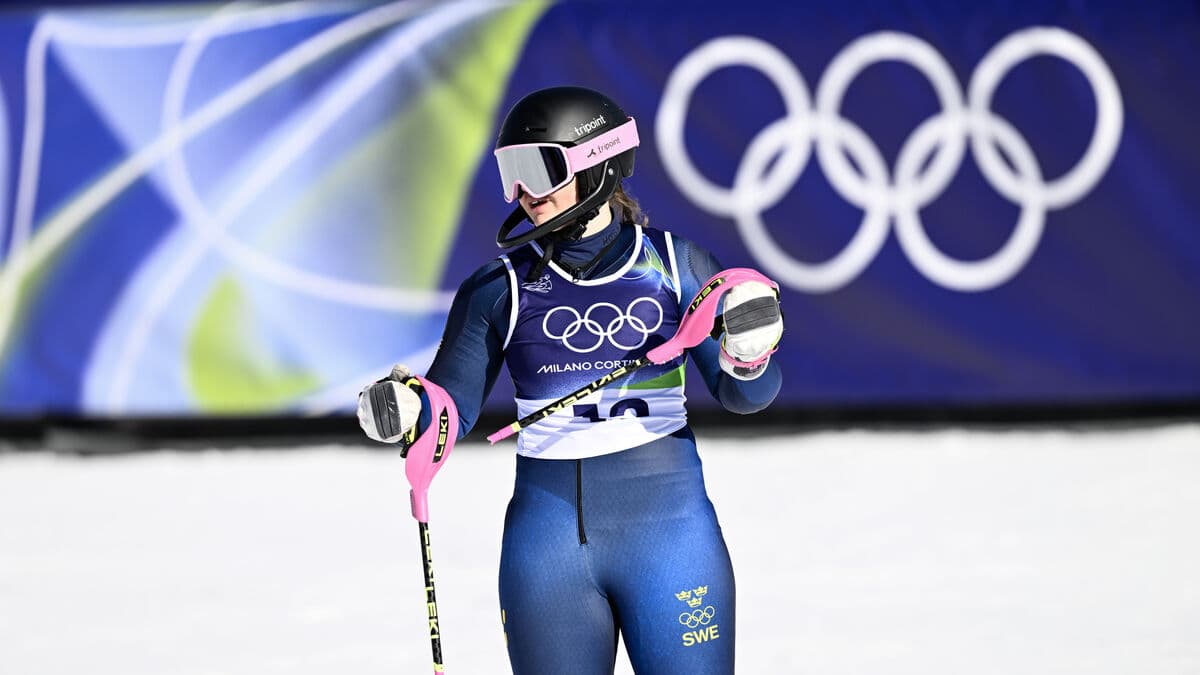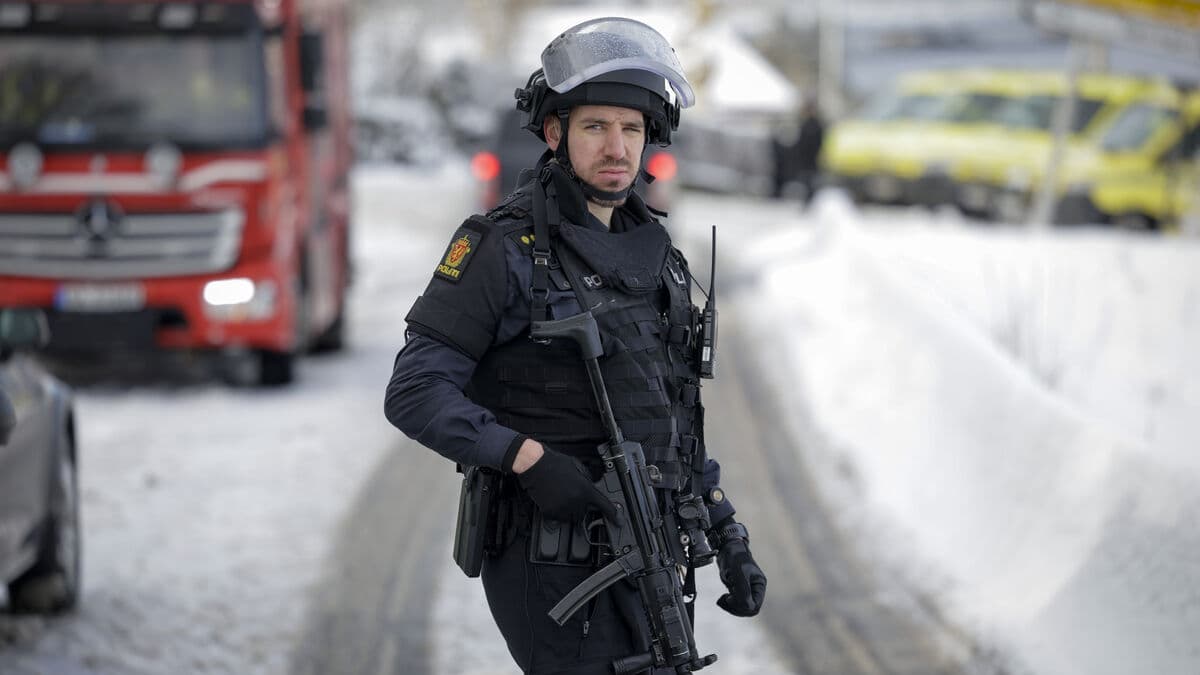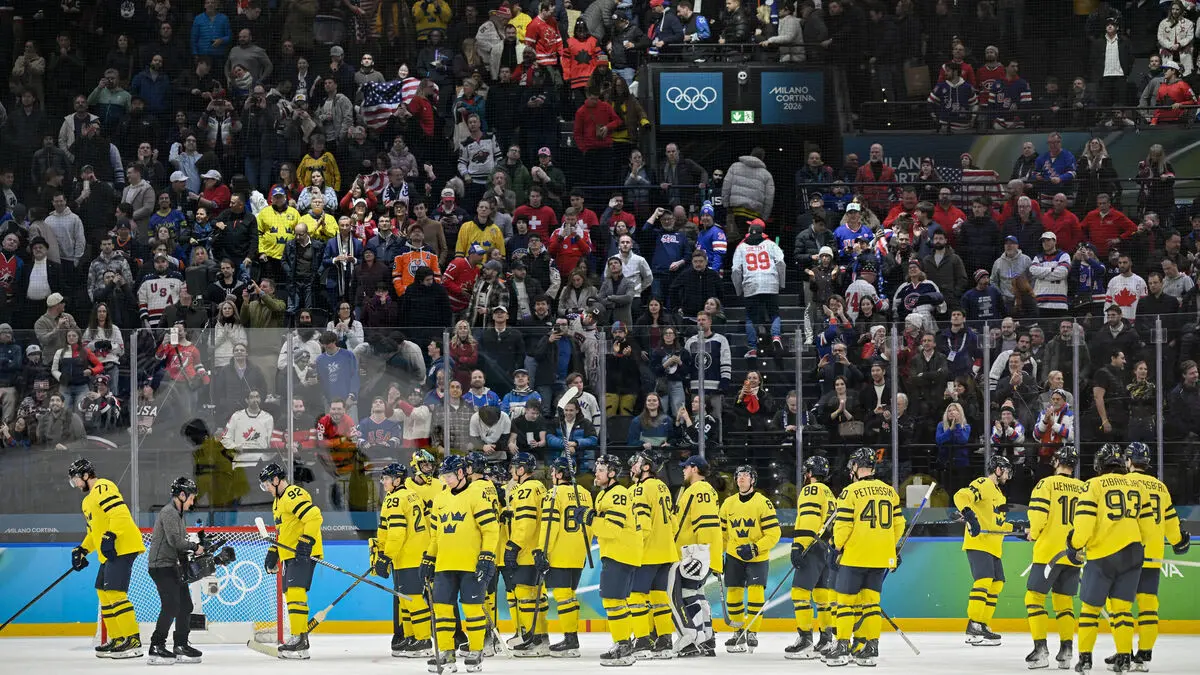During the Maidan Revolution in Ukraine in 2014, author Sofia Andruchovytj noticed that people began to explore their family histories more, something that had been forbidden during the Soviet era and too painful for previous generations.
It was unfortunately not until Russia's full-scale invasion that Ukraine's history was united and we began to fill in all the blind spots in our history, says Sofia Andruchovytj during her visit to Sweden – where she experiences the pause from the war's daily routine in Kyiv as strange.
The invasion of Crimea in 2014 prompted her to write "Amadoka", a 1,000-page epic that begins with the soldier Bohdan emerging with memory loss at a hospital, after battles in Donbass. Archivist Romana recounts his grandmother Uljana's life – and how she fell in love with a Jewish boy during World War II.
Pogroms
Sofia Andruchovytj found the perfect metaphor for Ukraine's shifting memory: Lake "Amadoka" was said by historian Herodotus to be the largest lake in the country, but it never actually existed.
She herself grew up in western Ukraine with the region's silenced history. The Jewish culture that was so present and rich there was almost erased during World War II, when nationalists collaborated with Nazi Germany against the Soviet Union, resulting in horrific pogroms.
I felt that if I can survive it through my writing, it will honor the people who lost their lives, says Sofia Andruchovytj, who vividly describes the violence.
She also depicts Stalin's regime's purges of the Ukrainian intelligentsia in the 1930s.
Writing showed me so many examples of how different regimes behave in similar ways. How they make people forget the will to act bravely or in ways that make us human.
Forgetting is dangerous
In "Amadoka", the violence is reflected through three different love pairs. Sofia Andruchovytj wonders why some become accomplices while others help their fellow human beings.
The fact that more people are now examining Ukraine's history gives her hope, while she thinks that everything has become complicated again with the war. The desire to understand and avoid trauma exists in parallel, which is also reflected in the growing interest in culture.
Many new bookstores have opened in the last three years and are always full of people. It's something that happens during war, people need to forget – but also to understand events better and find other ways to exist.
Born: 1982
Lives: Kyiv
Family: Husband, who is also an author, and a 16-year-old daughter. Her father is one of the country's most prominent authors, Jurij Andruchovytj.
Career: Debuted at 18 and has written several books. Got her international breakthrough with "Amadoka", which was published in 2020. The 1,000-page epic will be published in Sweden in two parts. Part two will be released in 2025.
Literary inspiration: "In recent years, it has been very important and inspiring for me to read female authors. I love Annie Ernaux, Sigrid Nunez, and Agneta Pleijel. On the one hand, it's because of my age, the personal experiences in other women's writing are close to my own view of things. And it helps me to handle things, to feel a connection to female power, it helps me remember who I am."
... Ukraine's future:
I cannot predict when this war will end, but what I know is that the consequences are very severe and serious, and we are already feeling them. There are so many complicated experiences. It's painful to go through this, to survive, we must forget some of the trauma, but we know that forgetting is also dangerous because it risks repeating history.
... having a father who is a famous author:
It was long complicated, and is. But after many attempts to find my own voice and to believe that I can write and say something original, I think I have managed to find confidence in myself as an author. "Amadoka" was the novel that made me more secure. Unfortunately, the full-scale invasion also led to me stopping evaluating it so much, it was no longer important.






